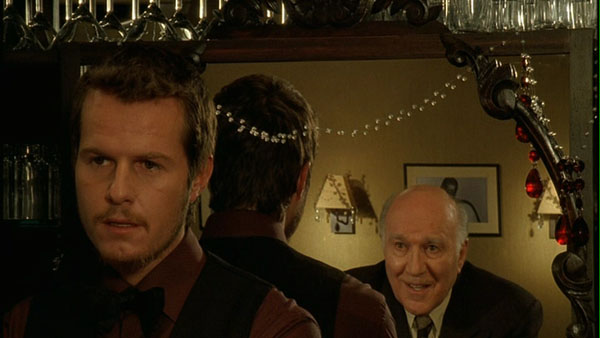“It’s in my style as homage to Bunuel’s style which is very different.”
Very spare, a couple talky dialogue scenes but mostly quiet, with pillow shots of Paris at night between scenes. Opening titles at the symphony, Husson spies Severine, out to the street, to a bar. Her hotel, a near miss. Back to the bar, Husson confesses what’s on his mind to the bartender – this scene must contain over half the dialogue of the film. Another chance meeting on the street, an invitation to dinner. At dinner Severine wants to know one thing, but Husson plays around, doesn’t tell her. She storms out. A chicken! He pays the servers from her forgotten purse, they clean up after he has left.
Piccoli (right) with the director’s grandson Ricardo Trêpa

Bulle Ogier also acted in Bunuel’s Discreet Charm

Piccoli, reprising his Belle De Jour role, was in a pile of other Bunuel films

N.D. Carlson of Cineaste has a compelling explanation for every part of the film: why it works and what it means… a wonderful analysis.
Sam, as usual, sees something I don’t see, even when I’m seeing what he saw, since it was his favorite narrative film of the year.
M. Dargis calls it “an act of critical violence.”
J. Rosenbaum calls it a “sequel-or tribute, or speculative footnote … more about class and less about sexual desire”
M. Piccoli: “Very often, cinema is indecent. What characterizes Manoel de Oliveira and Bunuel is their reserve. But don’t get me wrong: this reserve allows them to explore the most secret gardens of our existence. They are very modest but very immodest when it comes to shaking the imagination of the audience.”
